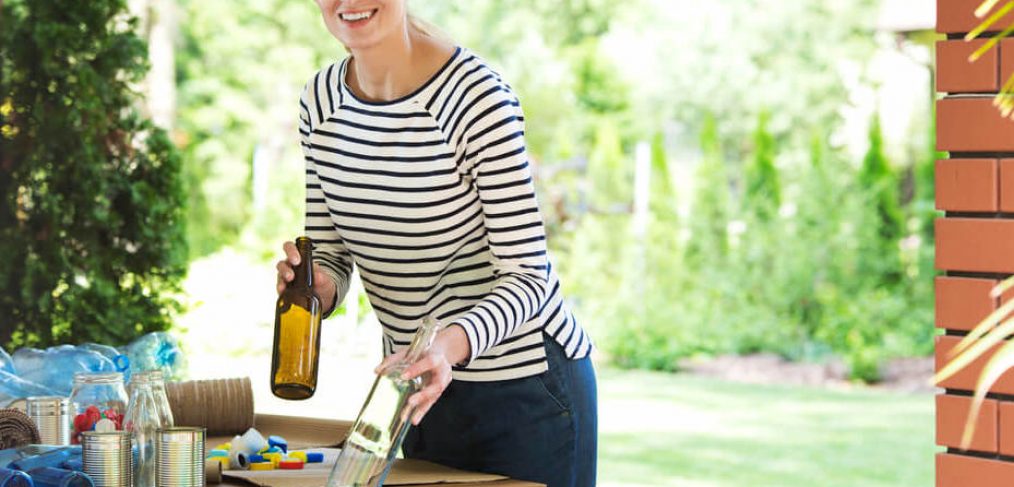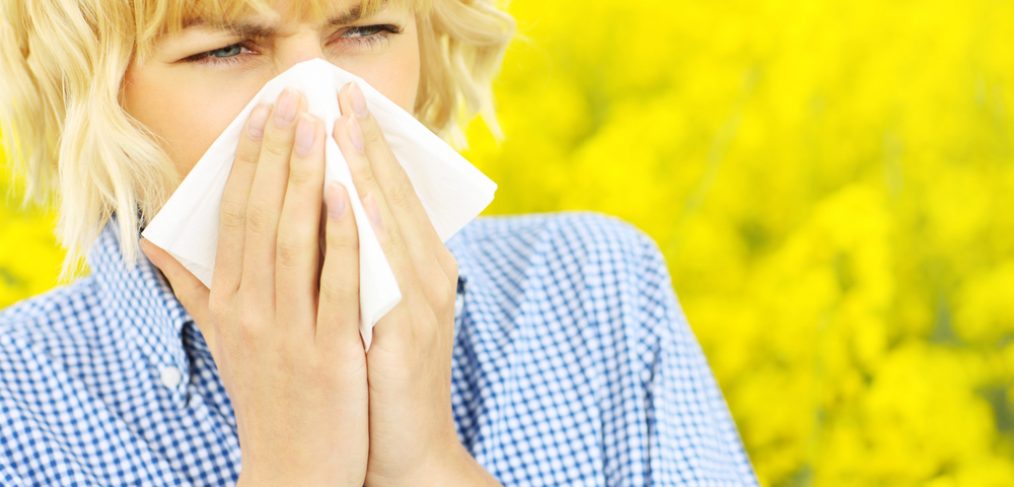Many people veer away from the idea of an eco-friendly lifestyle, fearing that this would require them to give up all of their creature comforts.
However, this is not at all the case…
Take a look at these 10 small changes that you can make in your life to make your lifestyle more eco-conscious.
Cut Back on Your Meat Consumption
The meat industry has been so devastating for the environment, and continues to cause so much damage.
As you likely already know, humans could do with more space on the planet, yet 83% of the world’s agricultural land is dedicated to livestock production, even though this only delivers around 18% of the population’s calories. only delivers around 18% of the population’s calories.
Not only that, but the livestock industry produces large amounts of dangerous greenhouse gases, contributing to the planet’s pollution problem.
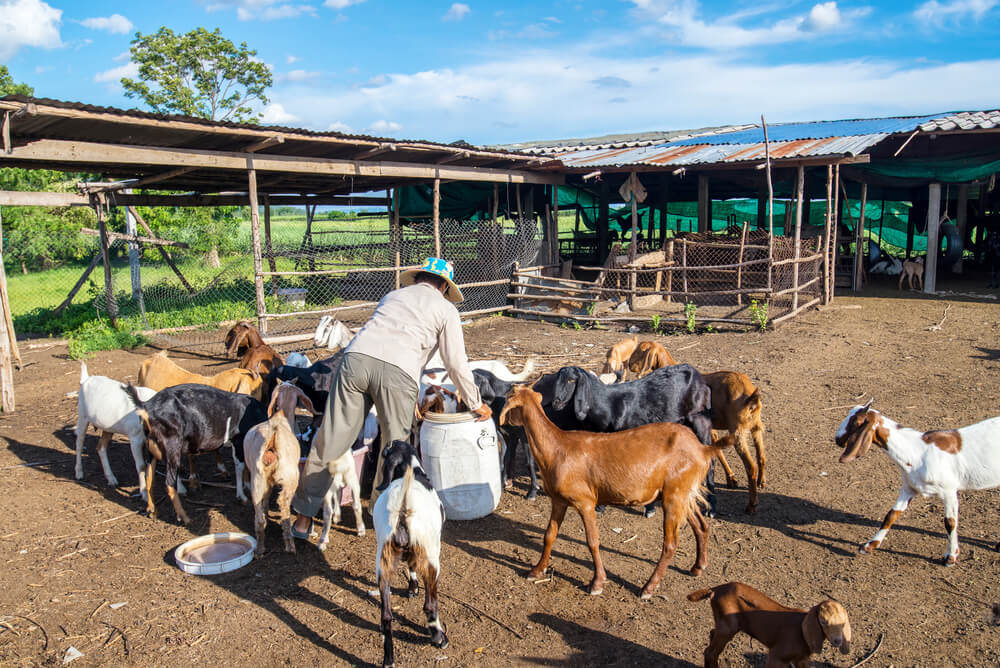
Are you a big meat eater?
If your answer is yes, then the idea of cutting back on your meat consumption is not likely to sound very appealing.
But did you know that this could benefit your health too, in addition to helping the planet?
All you need to do is start small, phasing out the meat portion in one or two meals a week. There are so many meat alternatives available now, as well as delicious vegetarian recipes, giving you plenty of other exciting options.
Reduce Your Carbon Footprint
Everybody has a carbon footprint, and while this term has been thrown about quite a lot lately, do you know what it actually means?
Your carbon footprint refers to the amount of carbon dioxide released into the environment that you have contributed to. This carbon dioxide has such a detrimental effect on global warming, and if everybody sought to reduce their carbon footprint by just a small amount, this would make a huge difference to the environment.
So, how do you go about reducing your carbon footprint?
Here are a few easy steps that you can take:
- Buy local – from food to clothes, buying locally grown or made products whenever possible will cut back on the amount of carbon dioxide it takes to bring you your goods
- Make use of public transport – if more people used buses and trains, carbon dioxide emissions would be significantly reduced
- Cut back on flying – if you are a frequent flyer, try cutting back on this, saving your flights for when they are really necessary instead
Go Organic
Let’s begin by making one thing clear…
If a food item is organic, this doesn’t mean that it is completely free from pesticides and other chemicals. Organic farmers are still allowed to use these, although to a much smaller extent.
That being said, organic food is noticeably lower in harmful chemical residues. Not only is that beneficial to your health, but it also means that less of those chemicals have been released into the environment in order to grow the food that you eat.
Don’t like the high price tags that often accompany organic produce?
Due to the fact that organic food is more labor-intensive to grow, and also sometimes produces smaller yields, prices are usually much higher than non-organic alternatives.
While you may not want to completely overhaul every item you buy and swap these for their organic versions, there are certain foods out there that end up so much more contaminated than others, making it worthwhile to at least buy the organic versions of those.
These are some of the items worth going organic for:
- Soft fruits – strawberries, raspberries and more have been tested, and over one-third of all samples contained at least 10 different pesticide residues, with one containing 22
- Spinach – this popular leafy green is almost guaranteed to contain pesticide residue, unless you go organic
- Apples – around 80% of tested apples contain traces of a pesticide that is banned in Europe
- Tomatoes – these tend to be particularly prone to absorbing pesticides, with smaller tomatoes being more vulnerable
- Celery – this is quite a porous vegetable, meaning that it quickly absorbs chemicals. Samples have shown 13 different pesticides contained within these crunchy stems
- Potatoes – research shows that potatoes contain more pesticides by weight than any other food
- Milk – organic milk means that the cow hasn’t been fed any hormones, making the milk much healthier for you
When it comes to the other foods you eat, many of these, such as onions and garlic, will contain tougher external skin. This helps to protect them from absorbing so many pesticides. While they will still contain chemicals, the foods listed above are the ones to focus on if you are only planning on going partly organic.
Switch to a Renewable Energy Supplier
There are now so many energy suppliers out there that offer 100% renewable energy sources for your home.
Where does this renewable energy come from?
The sources are varied, and include solar panels, wind turbines and hydro power.
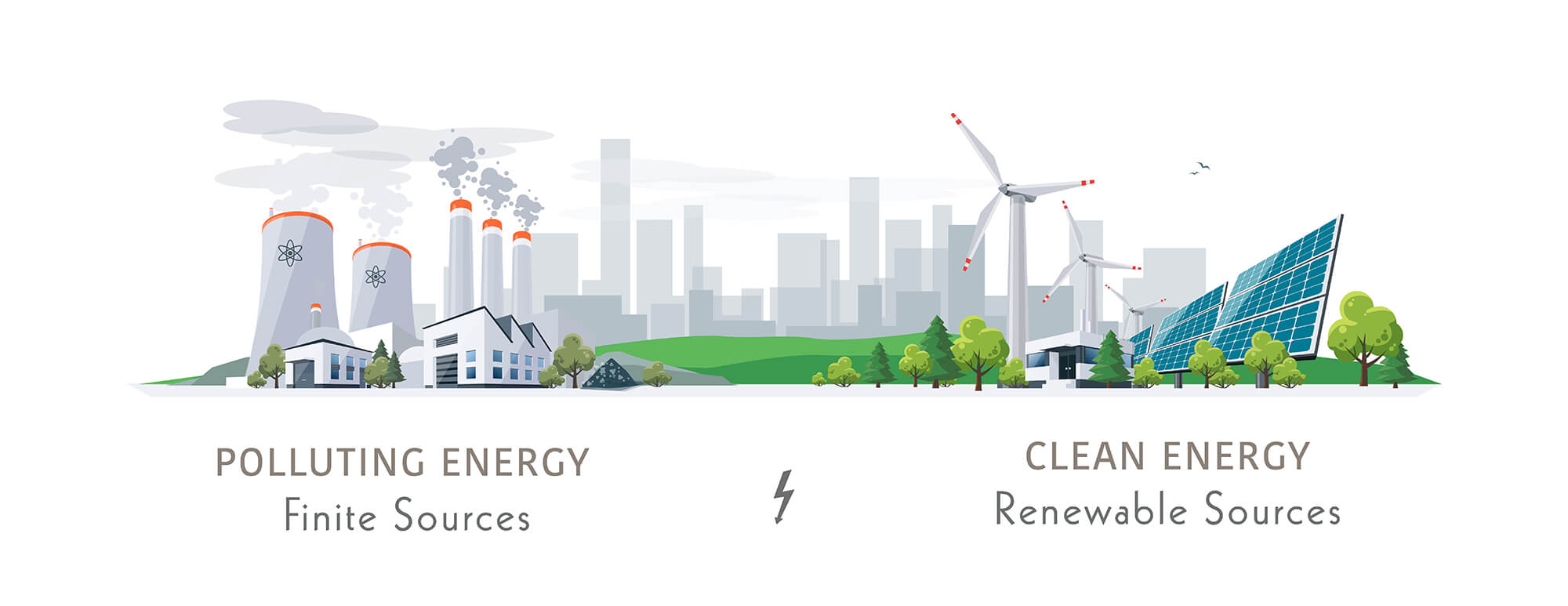
Each one will have its pros and cons, and their viability will also depend on where you live, as well as how much energy you use.
Not only is renewable energy so much better for the environment, but it could also save you some money.
How?
Well, firstly, renewable energy is cheaper. Secondly, many countries offer tax incentives for those who make use of renewable energy sources, giving you even more savings.
If you are new to renewable energy, many companies offer free consultations where they will come to your house and give you advice on the best renewable sources for you, making this well worth enquiring about.
Swap Instead of Shop
There are times when nothing can beat the satisfying feeling that comes from a day of retail therapy, but all of this consumerism is not doing the environment any favors.
The clothes that you buy contribute to your carbon footprint, and the rise of cheaper clothing means that more and more items are now ending up in landfills, instead of being repurposed and reused.
This is where clothing swaps come in…
They might not sound very glamorous, but they are a great way to get yourself some new clothes without having a negative environmental impact.
Wondering where to find these clothing swaps?
Many cities are now home to a swap shop, where you can bring in your unwanted items in exchange for tokens, which you can then use to purchase other items in the shop. There are many swap shops that are dedicated to other types of goods, excluding clothes, such as books, DVDs and more.
Can’t find a swap shop near you?
You can always gather together a group of people and arrange your own swaps. Simply have everyone bring in a certain number of items, and then let the swapping begin! Any leftover goods can be donated to charity shops, ensuring that there is no wastage.
Start Composting
Home compost bins have been growing in popularity in recent years, and for good reason too.
While some of the waste that you throw out, such as food waste, will break down in a landfill, the way in which it does so causes the release of harmful methane gases.
A compost bin enables these natural items to break down safely, while cutting back on the amount of waste you send to a landfill. It also helps to make you more aware of how much plastic and other synthetic materials you are using, since you won’t be able to place these into your compost bin.
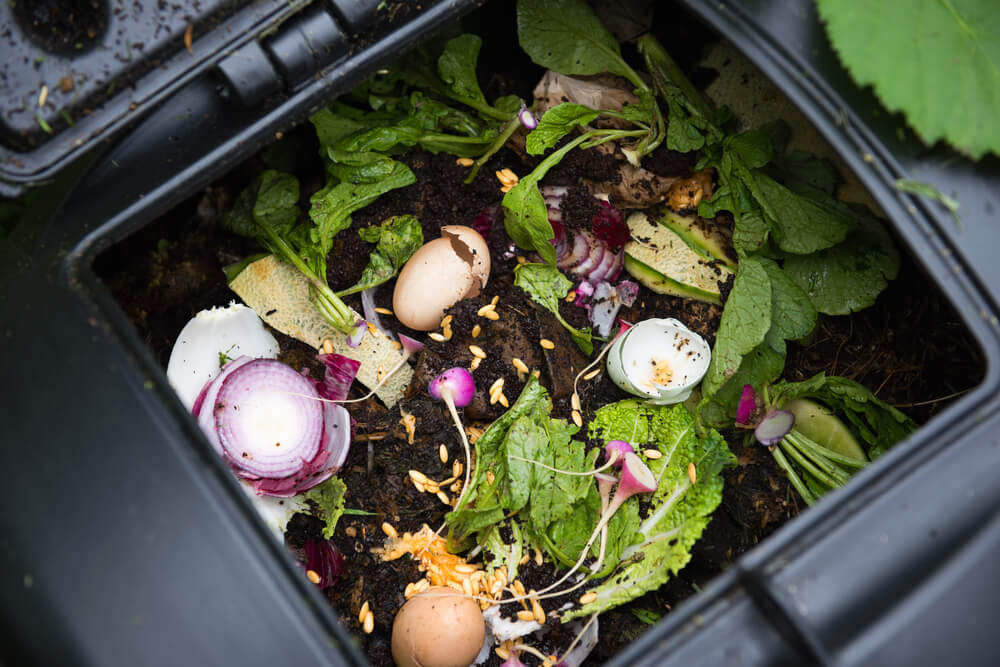
An added benefit to home composting is the compost that you end up with once the process is done. This really is the very best stuff for your garden, and will be so much more superior to any compost you could buy in a bag. Even if you aren’t a keen gardener, you will likely have friends or neighbors that are, and who would be extremely appreciative for your homemade compost.
Reusables Instead of Disposables
Disposable products really have taken over recently, and there is no denying that they can definitely make life easier and more convenient.
While this may be the case, have you ever thought of all the waste you are creating through the disposable products that you use?
There are so many disposable products out there that could easily be replaced with reusable versions.
Here are a few ideas of changes you could make around your home:
- Ink cartridges can be refilled
- Batteries can be recharged
- Reusable coffee filters
- Reusable razor blades
- Reusable food storage containers
Yes, it may take more effort on your part to reuse products instead of simply reaching for a new one, but the environment will definitely thank you.
Work From Home
While not everybody’s job enables them to work from home all the time, there are many jobs out there where this is possible at least once a week or so.
How does this help the environment?
Well, research shows that if one million people worked from home one day a week, this would cut back on three million tons of carbon dioxide being released into the environment each year.
Not only that, but the lack of stress you will experience from not having to go through your daily commute will do your health plenty of good too.
Not sure if your company allows employees to work from home?
It’s always worth asking to find out, especially when you have such good eco-friendly reasons behind your request!
Cut Back on Plastic
You likely use plastic in just about every part of your life, and all of this plastic soon ends up in landfills around the world.
Why is this bad?
Because plastic doesn’t break down properly, and also releases harmful chemicals into the ground, which then make their way into nearby water sources, contaminating surrounding ecosystems.
There are many other ways in which plastic is damaging to the environment, such as with all of the wildlife that ends up entangled in discarded plastic bags, or the animals that mistake the bags for food and eat them.
It does take quite a bit of dedication to really cut back on plastic usage…
Begin by looking at the food you buy. Many items are unnecessarily packaged in layers of plastic, but there are likely to be loose and unpackaged versions of these items available too.
Plastic bag usage is something that can be easily cut back on. Simply start using reusable bags instead, keeping these in your home, car, office and anywhere else that makes them easily accessible for when you need them.
Bottled water is another big problem, but, again, is easy to overcome. Simply stop buying bottled water!
Don’t like the taste of your tap water?
It may be worthwhile purchasing a water filter to filter out any chemicals that have been used in the water system.
Automatic Car Washes
Do you wash your car yourself, or do you take it through a car wash?
People who wash their cars themselves likely think that this is much better for the environment, but this is actually the opposite from the truth…
When you wash your car yourself, you end up using 10 gallons of water every minute. On the other hand, if you put your car through an automatic car wash, this uses up around 15 to 30 gallons of water in total.
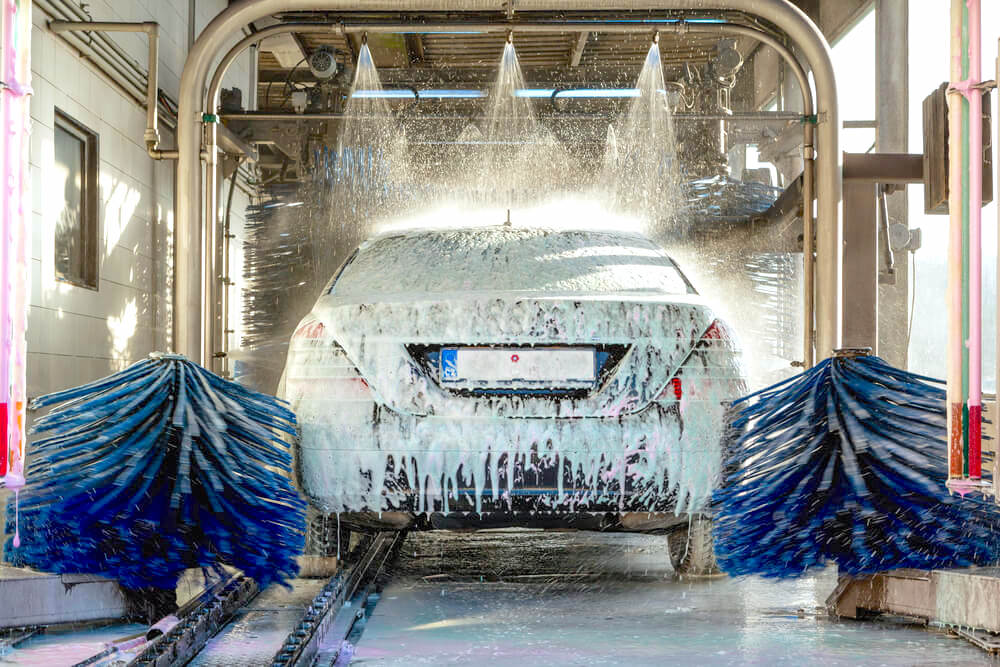
This means that unless you are able to wash your car yourself in under three minutes, you would save a significant amount of water by taking your car through an automatic car wash instead.
Each of these ten steps are quite easy to implement, and while they may not seem like huge changes, they definitely make your lifestyle so much more eco-friendly. From using renewable energy sources to cutting back on waste, following these steps will reduce the amount of damage that you are personally causing to the environment.



